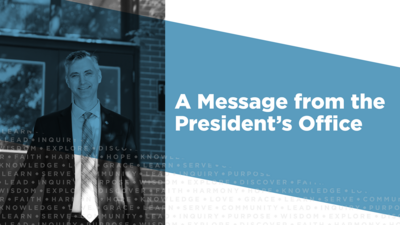Becoming an Effective and Influential Christian Educator

What does it take to be an effective and influential Christian educator (at any level)? After spending years working with faculty who came seeking help after a disappointing course evaluation, observing and learning from truly world-class educators and studying the literature, I'm convinced that it comes down to cultivating competence in four areas.
Disciplinary Expertise
Do I know the discipline well, its discourse, truth claims, complexities, unanswered questions, strengths, and limitations? It is not enough to know the facts, although that is important too. Expertise is more profound and immersive. It is necessary to be one who not only transmits knowledge but nurtures growing competence, expertise and wisdom within a discipline or domain of study.
Teaching Expertise
Do I know how to teach in ways that consistently and predictably increase the chance of students learning, growing, and thriving? Such expertise includes, but is not limited to:
organizational skills,
how to prioritize, establish, and communicate learning goals and pathways,
the capacity to translate from expert to novice,
communication skills,
how to check for understanding, designing and providing ungraded and formative feedback,
how to create clear, compelling and organized lessons and learning experiences
and how to develop fair, consistent assessments that measure student progress toward meeting the stated goals.
Knowing the Learners
Do I know the learners in general and specifically? In general, do I know the proclivities and tendencies of the particular group I teach? This may involve what is unique to that group/culture/context, age, developmental tendencies, shared past experiences that may influence their readiness, etc. Specifically, am I growing in my knowledge and understanding of each student's joys, challenges, fears, strengths, challenges, history, etc.? By the way, this is not just about knowing the learner demographics and facts. Ultimately, this is about building a positive, caring, trusting and mentoring relationship with the students.
Knowing the Scriptures
Do I know the Scriptures well, including the areas where God's Word clashes or aligns with the discipline I teach? Do I know how to communicate God's Truth as it relates to the truth claims, ethics, and other considerations of the field of study?
If you have all of these but disciplinary expertise, you will struggle or fail to teach with truth, integrity and excellence.
If you have all of these but teaching expertise, you will frustrate, disenfranchise and struggle or fail to help students learn and thrive. You will also likely confuse academic rigor (making learning painful) with academic rigor (challenging and stretching learners in good and positive ways).
If you have all of these but knowledge of the learners, your teaching will struggle or fail to achieve the best possible results for the specific group of learners. Furthermore, the distinct needs of individual learners will often be unmet, resulting in worse outcomes for those students.
If you have all of these but knowledge of the Scriptures and their implications for your discipline. you will struggle or fail to engage internationally in discipleship of the mind, unique to a Christian educator's calling.
All of these become foundational to being an influential and effective educator who is also capable of being an inspiring mentor and cultivator of wisdom, competence, and ultimately excellence. None of us are excellent in all of these areas all the time. Rather, each of these four are areas where we as educators are called to embrace a commitment to lifelong growth and formation.
Related Stories


